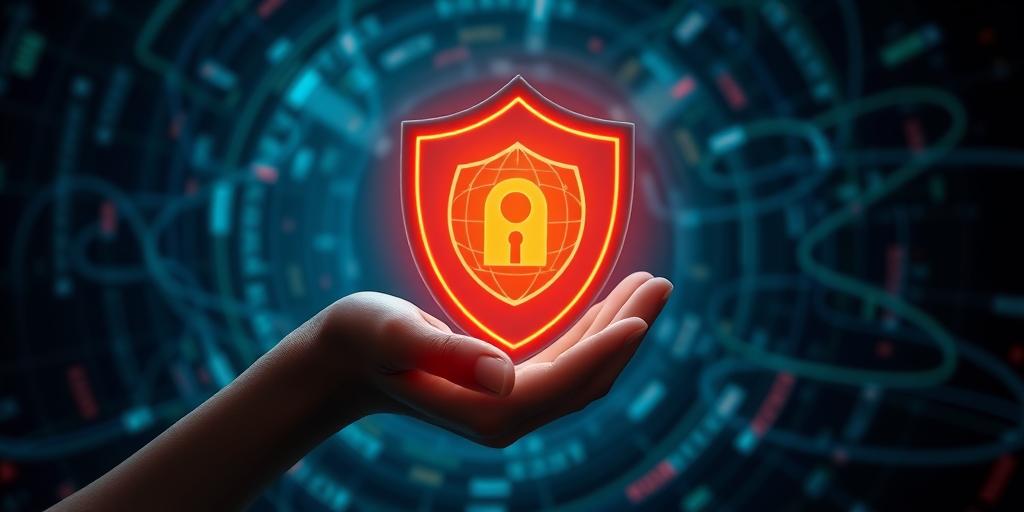In today’s digital age, where our lives are increasingly intertwined with technology, cybersecurity plays a crucial role in safeguarding our digital freedoms. From accessing information to expressing ourselves online, these freedoms are fundamental to a democratic society and empower individuals to participate fully in the digital world. However, the increasing sophistication of cyber threats poses a significant challenge to these liberties, highlighting the urgent need for robust cybersecurity measures to protect our digital rights.
The Importance of Digital Freedoms
Digital freedoms are essential for individual empowerment, economic growth, and societal progress. They encompass a range of rights, including the freedom of expression, access to information, privacy, and security online. These freedoms enable individuals to participate in online discussions, access diverse perspectives, and engage in e-commerce and online services.
The Growing Threat to Digital Freedoms
The digital landscape is increasingly vulnerable to cyber threats, ranging from data breaches and malware to denial-of-service attacks and social engineering schemes. These threats can compromise individuals’ privacy, restrict access to information, and even undermine national security. The rise of sophisticated cybercriminals, state-sponsored hacking, and the proliferation of malicious software further exacerbate these threats.
Cybersecurity as a Shield for Digital Freedoms
Cybersecurity acts as a vital shield, protecting our digital freedoms from malicious actors. By implementing robust cybersecurity measures, we can mitigate the risks posed by cyber threats and ensure the continued enjoyment of our digital rights.
Protecting Personal Data and Privacy
Cybersecurity plays a crucial role in protecting our personal data and privacy online. Strong cybersecurity measures, such as data encryption and access controls, help safeguard sensitive information from unauthorized access, ensuring individuals have control over their own data. This is particularly important in the context of online transactions, social media, and other digital platforms where personal information is often shared.
Ensuring Freedom of Expression and Information Access
Cybersecurity is essential for ensuring the freedom of expression and access to information online. By protecting websites and online platforms from cyberattacks, we can ensure that individuals can freely express their views and access diverse sources of information without fear of censorship or manipulation. This is crucial for a vibrant and democratic online environment.
Safeguarding Critical Infrastructure and National Security
Cyberattacks targeting critical infrastructure, such as power grids, transportation systems, and financial institutions, can have devastating consequences, disrupting essential services and endangering national security. Robust cybersecurity measures are essential to protect these critical assets from cyber threats, ensuring the continued functioning of vital infrastructure and the safety of citizens.
Key Cybersecurity Measures for Protecting Digital Freedoms
Individuals, organizations, and governments all have a role to play in strengthening cybersecurity and protecting digital freedoms. Here are some key measures that can be implemented:
Strong Passwords and Multi-Factor Authentication
Using strong and unique passwords for each online account and enabling multi-factor authentication (MFA) significantly enhance account security and make it more difficult for attackers to gain unauthorized access. MFA adds an extra layer of protection by requiring users to provide multiple forms of authentication, such as a password and a one-time code sent to their phone.
Regular Software Updates and Security Patches
Software vulnerabilities can be exploited by attackers to gain access to systems and data. It is crucial to keep software up to date by installing regular updates and security patches released by vendors. These updates often contain fixes for vulnerabilities and help strengthen system security.
Secure Network Connections and Data Encryption
Using secure network connections, such as Virtual Private Networks (VPNs), helps encrypt data transmitted over the internet, making it more difficult for attackers to intercept and steal sensitive information. Additionally, encrypting data at rest, meaning data stored on devices and servers, further protects information from unauthorized access.
Cybersecurity Awareness Training and Education
Raising awareness about cybersecurity best practices and threats is crucial for individuals and organizations. Cybersecurity training programs can educate users about common threats, phishing scams, and how to protect themselves online. This can help reduce the risk of human error, which is often a key factor in security breaches.
The Role of Governments and Organizations
Governments and organizations play a critical role in shaping the cybersecurity landscape and protecting digital freedoms.
Developing Comprehensive Cybersecurity Policies
Governments should develop comprehensive cybersecurity policies that promote digital freedom and security. These policies should address issues such as data protection, online privacy, and cybercrime, and should be aligned with international standards.
Investing in Cybersecurity Research and Development
Investing in cybersecurity research and development is crucial for staying ahead of evolving cyber threats. Governments and organizations should support the development of new technologies, tools, and techniques to improve cybersecurity defenses.
Promoting International Cooperation on Cybersecurity
Cybersecurity is a global issue requiring international cooperation. Governments and organizations should work together to share information, develop common standards, and coordinate responses to cyber threats.
The Importance of a Proactive Approach to Cybersecurity
A proactive approach to cybersecurity is essential for safeguarding our digital freedoms. This involves staying informed about emerging cyber threats, regularly updating security measures, and investing in cybersecurity education and training. By taking these steps, we can create a more secure and resilient digital environment that protects our fundamental rights.
The Future of Digital Freedoms in a Connected World
As our reliance on technology continues to grow, the importance of cybersecurity will only increase. The future of digital freedoms hinges on our ability to effectively address the evolving cyber threats and ensure a secure and equitable digital world for all. This will require a collaborative effort from governments, organizations, and individuals to invest in cybersecurity, promote awareness, and develop innovative solutions to protect our digital rights.




